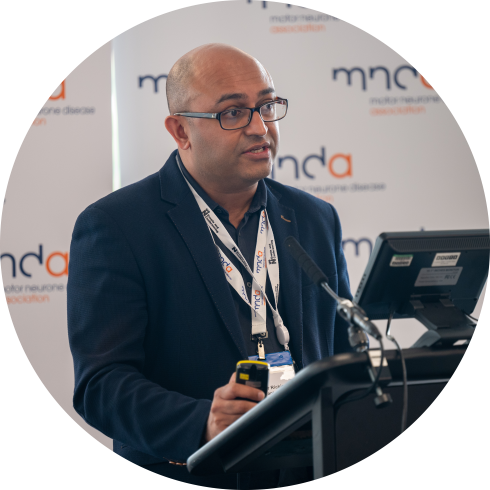Understanding issues in the underlying biological mechanisms that lead to the development of MND.
Principal Investigator: Prof Rickie Patani
Lead Institution: University College London
MND Association Funding: £150,000*
Funding dates: March 2019 - February 2024
*Supported by the The Lady Edith Wolfson Fellowship Programme
About the project
To understand precisely what goes wrong in MND and where, this project uses induced pluripotent stem cell (iPSC) technology. This is where skin cells from patients are ‘tricked’ into becoming stem cells and are then transformed into motor nerves. New problems are identified within instructions that normally make the protein, also with misplacement and malfunction of these proteins. As well as the motor nerves, ‘supporting’ cells called astrocytes are found to be co-conspirators in MND. Another major aspect of the proposed work is understanding how ageing makes these cells vulnerable to MND. Studying these aspects will help to identify key processes that can then guide new therapy development.
What could this mean for MND research?
This fellowship will help us to understand more about the changes that occur in motor neurons and astrocytes in MND. Increasing knowledge of how proteins become toxic and contribute to the damage seen in neurons in the disease might help to reveal more about the development of MND. It could also aid in identifying factors and changes related to aging that may make the cells more vulnerable to developing MND. It is hoped that the outcomes of this work could lead to the discovery of new targets for developing new potential therapies for the disease.
Resources
Project code: 950-795



